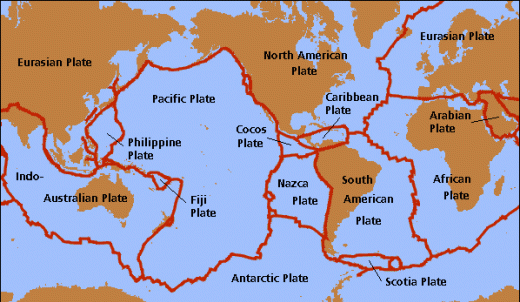What is Geological Oceanography?
 Karyn Maier
Karyn Maier
Put simply, geological oceanography is the study of the ocean floor. This branch of earth science is focused on the geological structure and topography of the ocean floor and the natural processes that create and modify these features. Scientists specializing in this field apply oceanographic principles and techniques to uncover important geological events that have occurred millions of years ago, as well as to predict those likely to occur in the future.
In terms of structure, geological oceanographers study the effects of the movement of the earth’s lithospheric plates, which results in sedimentary deposits and the formation or destruction of the ocean floor. One notable area of concentration impacted by these processes is the continental shelf. This is the area of land under the ocean just off the shore, and extends to the point where the shelf slopes and descends to the abyssal plain of the ocean floor, the depth of which varies across the globe. By measuring the depth of the shelf at specific locations, scientists can predict the pattern of movement of water along the coastal shore, as well as the height of waves that can be expected to initiate offshore and eventually reach land. Studying variations in the continental shelf also provide clues to help estimate fluctuations in sea levels in various geographic regions, as well as the impact of tropical storms.

There are numerous secondary disciplines that fall under the science of geological oceanography. For instance, paleoclimatology is the study of deep-sea beds to construct a timeline of climatic change as it relates to shaping and reshaping the Earth, as well as the health and biodiversity of past and present living organisms. Plate tectonics is the study of the earth's tectonic plates, which reside on the planet's lithosphere and are triggered to migrate due to heat being generated from the underlying upper mantle of the earth's crust, or asthenosphere. Many sub-disciplines of geological oceanography yield even more specialized areas of study. For example, seismology, which is devoted to the study of earthquake activity, is a subcategory of plate tectonics.

Geological oceanography scientists use a wide variety of tools and equipment in their work. For example, in addition to satellite imagery, researchers utilize highly advanced instruments to map the ocean floor, such as high-resolution swath bathymetry survey systems and side-scan sonar and acoustic profiling equipment. Many scientists also participate in deep-sea exploration programs, such as the Ocean Drilling Program (ODP), an international project funded and operated by the US National Science Foundation and 22 global partners that make up the Joint Oceanographic Institutions for Deep Earth Sampling (JOIDES).
AS FEATURED ON:
AS FEATURED ON:












Discussion Comments
Are there any examples of geological oceanographers?
Post your comments